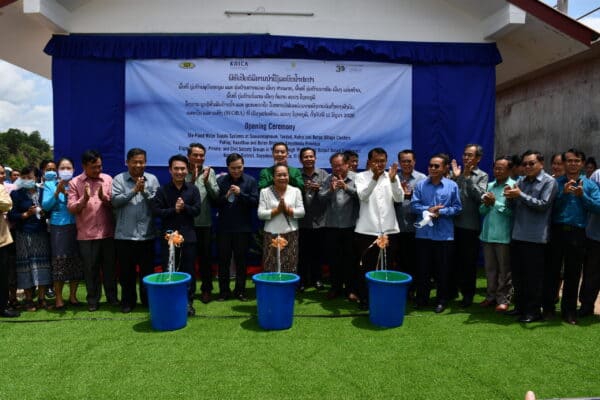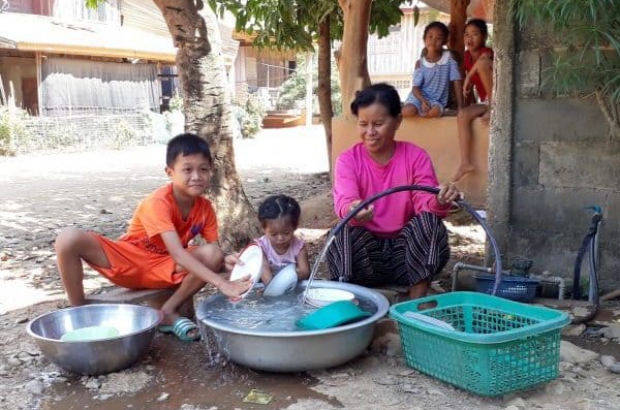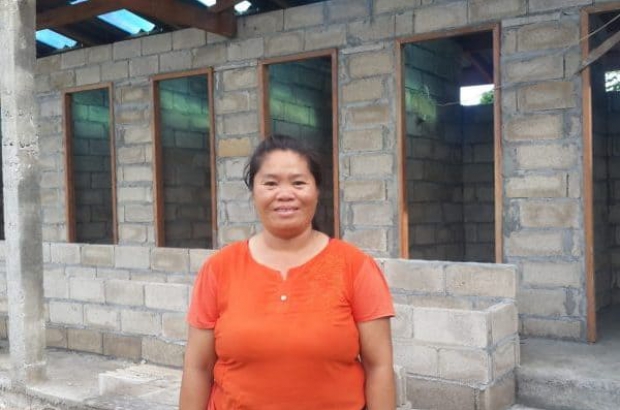
Latrines – A Healthy Investment
3085
In the farming village of Lak 38 in Champasak province, PDR Lao, toilets are rare and open defecation is common. For 52-year-old resident Mrs. Peng and her six children, using a toilet has always meant digging holes in the family coffee plantation. Without other options, they endured discomfort and felt unsafe, especially at night and during rainy months. The lack of walls for privacy also exposed them, particularly her four daughters, to attacks from strangers and wild animals.
Mrs. Peng protects her children, preserves the environment and supports her community – just by owning a pour-flush toilet.
Mrs. Peng became determined to change her family’s situation after participating in a Thrive Networks WASH project funded by the Australian Department of Foreign Affairs and Trade (DFAT). The project aims to improve the health of rural communities by helping to increase access to clean water and functioning toilets.
At a Community-Led Total Sanitation CLTS activity, Mrs. Peng learned about the risks of open defecation, including water contamination. She then understood that buying a toilet is an investment in her family’s health.
Mrs. Peng allocated money from her coffee bean sales to build a pour-flush latrine. Her expenses were reduced through the reimbursement program. Her family’s latrine is a simple change that makes all the difference. No longer needing to venture outside for a toilet and gaining new knowledge of hygiene habits, Mrs. Peng and her family enjoy more comfort and safety every day.
Related Articles


